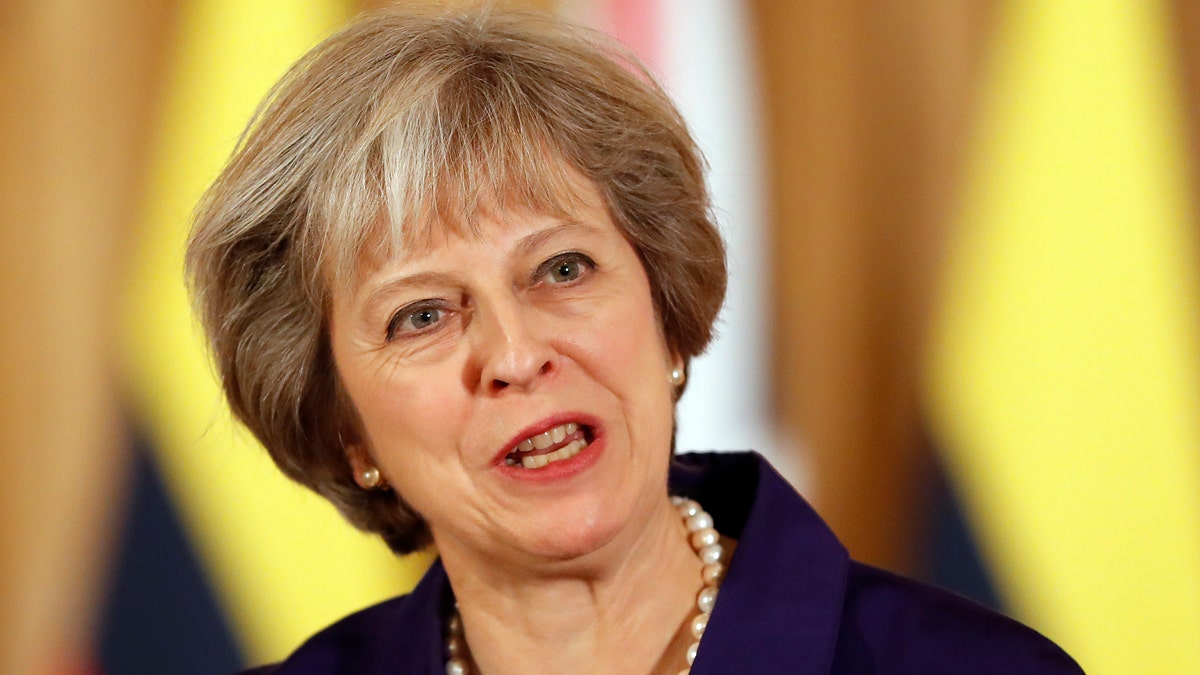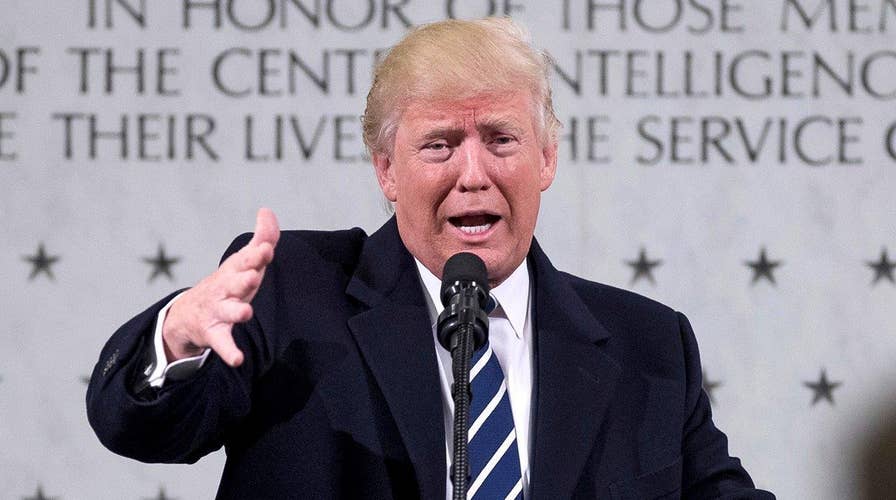President Trump slams media during speech to the CIA
John Roberts reports on the new president's visit to CIA headquarters
The World Economic Forum wrapped up today. The looming inauguration of now President Donald Trump dominated dialogue. The big story of Brexit almost felt like distant history.
But Britain's Prime Minister, Theresa May, put a fresh spin on the dramatic event, in a speech, saying, "We want a truly global Britain." So instead of positioning the UK as a country in retreat, in inward mode, she thrust it forward as a country looking beyond Europe, "into the wider world."
Many Europeans tried to put on a brave face about the battering the European Union took this year, but the cracks were never far from the surface. One panel called "Which Europe Now?" broke into as much of an argument as the genteel forum allows for, with one head of state saying, essentially, enough talk about more bonding and merging. The message-it's broken. Let's just do what we can to make it work.

British PM Theresa May (AP)
Emma Marcegaglia, head of the Italian energy giant, ENI, spoke about how dreams of equality were never realized in the European project.
"What happened in this period when we have the euro is the divergence among countries didnt diminish, but it increased, and this is not sustainable. We started the euro with a difference in competitiveness between north and south, and the idea was with the euro and with coordination of policy, the gap should narrow. What happened was the opposite."
She also suggested that more investment by the stronger into the weaker countries is imperative. Marcegaglia believes there shouldn't just be penalties for debt and deficit, but also for holding a surplus.
Cyber security seemed to trump terrorism in discussions this year--the President of BT Americas, Bas Burger, said that despite the massive concerns about hacking of political systems and meddling in US elections, the biggest cyber threats are commercial. He said that compared to 2014, he has seen a 1000% increase in the number of attacks on his company.
"There is a realization now that every company every second of the day can be hacked and is being hacked as we speak, so people who run these companies need to think, how am I going to protect my organization. Best way to do that is to look at your company as if you were a criminal and think, ok, where are my values."
He laid out the cat and mouse game involved in outsmarting the hackers and criminals, who are not only syphoning money from people via the internet, but stealing ideas, pharmacuetical formulas, posing as employees and extorting money for withdrawing viruses.
And then there are the issues of privacy, bullying and trolling which become more problematic with each year. One off-the-record session was about creating some sort of Magna Carta for the internet. It brought together a host of celebrities, from Sir Tim Berners Lee, founder of the worldwide web, to youth mentor and music star William Adams, otherwise known as Will.i.am.
The debate between the good and the bad of our tech society coursed through the Swiss Alps, with talk of the need to keep education and training ongoing in people's lives so they don't become irrelevant and redundant. Our attachment to technology was cursed and blessed. Bas Burger said,
"There was research, I believe done in the United States, where you could ask your children-you can either go to jail with your phone, if you are punished for something, or you can stay outside, without your phone. The majority of kids actually picked jail, with the phone. "
Finally, Tweeter-in-Chief, President Donald Trump's habits were much discussed: Are they a diversionary tactic, to keep the media from holding the President to account, and getting the answers they need? Or are they a helpful, responsible provision of information? The jury remains out on how the media should handle his missives, and whether they should cover each one, or be selective. But all were in agreement, Trump appears unlikely to kick the habit anytime soon.

